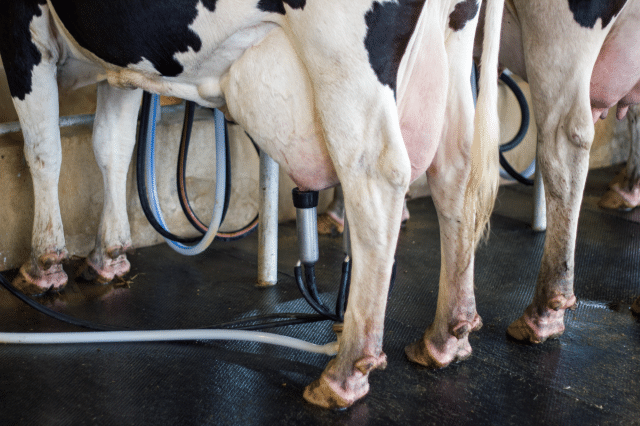QUICK DEFINITION
The fixed interval reinforcement schedule is a behaviorist concept in which reinforcement is provided after a consistent time interval, promoting behavior shortly before the anticipated reinforcement time, regardless of the behavior’s frequency.
EXPLANATION:
Have you ever completed your homework or studied hard because your parent promised you a gift?
They were trying to make you study hard.
The best way to teach a person or animal a new habit is to reward them for doing what you want.
As they strive to get the reward, they end up repeating the desired action.
Therefore, reinforcement is the process of encouraging or strengthening a given pattern of behavior.
You can encourage positive behavior by varying the duration for rewarding the subject.
The reward could come after each activity, after a specific period, or based on the results of their work.
What Exactly Is Fixed Interval Reinforcement Schedule?
A fixed-interval reinforcement schedule is a case where you reward an action performed within a specific period.
The reward appears in specific, predictable intervals where you check if the activity was carried out.
The doer of the action receives a specific reward if they can complete the said task within the agreed period.
If they fail to meet these terms, they are not punished but do not receive the reward.
With time, a person or animal’s behavior changes as they strive to get the reward.
You only reward the first time the person or animal does the desired action, even if they repeat it.
EXAMPLES:
Here are 7 instances of fixed-interval reinforcement schedules in daily life.
1. A Set Payday for Salaried Workers

Salaried workers are paid every fortnight or a month for showing up and doing their work.
The salary acts as a motivation to keep them going to the workplace.
Unlike performance-based payment, a salary is paid for just being consistent at working for the said period.
Workers just need to put in the agreed number of hours and are good to go.
Without the salary, workers cannot keep a consistent working schedule and are likely to work for fewer hours.
2. Six-Month Interval Dental Checkup

A dental checkup works as a fixed-interval schedule.
People who have regular dental checkups tend to take extra steps to take care of their teeth just before going for an exam, even if they were not very keen before.
They do this expecting a positive response from the dentist.
With time, the longing for a positive response from the dentist makes people improve their oral hygiene, reinforcing positive behavior, which is beneficial to their health.
3. Pet Training

Pets are trained to learn new behaviors using rewards.
Fixed interval reinforcement is one way to get the pets to perform a particular repeatedly.
Here is an example: if you would like to be taking your dog for a walk each evening at 5pm, you can train him to wait for you at the door each day at the time by giving him a treat.
The dog may be sitting at the door several times a day. However, he only gets a reward for sitting there at 5 pm.
With time, the dog will get used to standing by the door to receive your reward, reinforcing the positive behavior.
4. Gaming

Gaming companies use fixed-interval reinforcement to get players to log in with a particular period.
They do this by giving out regular rewards each week, offering refreshments and discounted upgrades as well as temporary tournaments.
Gambling companies also reward players for just logging into their accounts.
When players expect to get rewarded or where logging in increases their chances of getting rewarded, they will keep checking their accounts within the promised period.
Once players log in, the gaming company uses other types of reinforcement to keep them on their toes all day long.
5. Regular Interval Tests

If a particular subject teacher gives students a weekly exam every Monday morning, students will always hurry to study the subject during the weekend to be ready for the test.
They may not be studying as hard during other days of the week except for a few days to the test.
Nevertheless, they get into a habit of studying each weekend, which generally improves their grades in the long term. This could be the goal of the teacher when instituting regular tests for their subject.
6. Fitness Competition

If you were selected to join a fitness competition, you would be subjected to measurements after every week to determine things like your weight loss, muscle growth, and water intake.
Regular training and discipline are sometimes hard for participants, and some may fail to follow the set schedule.
However, the prospect of having poor results at the end of the week causes them to work harder a few days to the weekly fitness measurement meeting, even if they are not very keen before.
The positive result (weight loss) becomes the reward that appears every weekend.
7. Milking Cattle and Feeds

If you run a dairy farm where you milk your cattle in a shed at a particular time of the day and tend to give them special or different feeds during milking, the cows will associate the reward with milking.
Around the time you usually milk them, the cow will come near the shed expecting the reward.
With time, the farm attendant will easily get the cows to be milked as the prospect for reward brings them to the milking shed.
Conclusion
Rewards are powerful motivators for behavior change. As we strive to get the reward, we do what we are required to do, whether actively or subconsciously.
If we expect the gift at specific intervals, we tend to get compliant and do the activity just before the time we expect the gift.
Look around for other examples of behaviors formed by regular interval rewards. Try using the same idea to reinforce the desired behavior in your pets, children, or friends!

